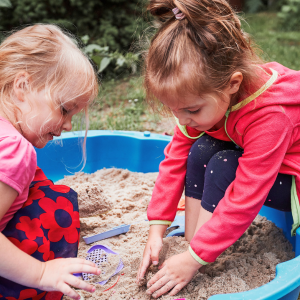|
With house prices and rent skyrocketing, it’s understandable that keeping a roof over their heads is a concern for both parties on divorce. If children are involved, those concerns multiply. In my experience, there’s a widespread misconception that in a traditional nuclear family, Mum always gets ‘custody’ of the children and, therefore, also gets the house – at least until the children reach adulthood. But what happens in reality? Who gets the house in a divorce with children?
“I would like to thank Holly Skelton for her steadfast professionalism, efficiency and diligence throughout. I cannot recommend Holly enough.”
Who gets the house in a divorce with children?
In fact, there’s no set rule on what happens to the family home on divorce. Instead, Section 25 of the Matrimonial Causes Act 1973 sets out a list of factors the court must consider regarding a fair division of assets and finances.
 When children are involved, the law in England and Wales prioritises their welfare. So, in deciding what happens to the family home, the court will first want to ensure the children have a secure home, thus minimising the divorce’s impact on their quality of life.
When children are involved, the law in England and Wales prioritises their welfare. So, in deciding what happens to the family home, the court will first want to ensure the children have a secure home, thus minimising the divorce’s impact on their quality of life.
Where children spend equal time with both parents, both parents have the same housing needs. Subject to the amount of equity available and the parties’ incomes, it may be possible for each of them to buy a new, if smaller, property. But in most cases, that’s unlikely.
More often, one parent is considered the primary caregiver. Depending on all of the circumstances, the court may decide that this parent should continue living in the family home. So, who gets the house can be closely linked to the parent with whom the children primarily live.
See also: Bird nesting parenting: the divorce trend of rotating homes
Property Adjustment Order
A Property Adjustment Order (“PAO”) is a court order made under Section 24 of the Matrimonial Causes Act 1973. PAOs are one of several types of order in the Family Court and address spouses’ property rights on divorce. A similar provision exists under Schedule 5 of the Civil Partnership Act 2004.
If the primary caregiver remains in the family home, the other party is not necessarily removed from the title or exempt from paying the mortgage. Again, the arrangements depend on all of the circumstances of the case. The PAO sets out the detailed terms.
Who gets the house in a divorce with children: examples
 My recent cases reveal the sheer variety of PAO terms where children are involved, highlighting the importance the court places on tailoring the order to the parties’ circumstances. They include:
My recent cases reveal the sheer variety of PAO terms where children are involved, highlighting the importance the court places on tailoring the order to the parties’ circumstances. They include:
- The property stays in joint names, with the primary caregiver remaining in the family home until the youngest child reaches secondary education. At that point, the property is sold with an unequal equity division (favouring the caregiver).
- Transfer of the property into the primary caregiver’s sole name. The other spouse receives an agreed percentage of equity on the property’s later sale.
- The property remains in joint names, with the non-resident spouse paying the mortgage. On the youngest child reaching 18, the property is sold with an equal division of equity.
The mortgage
In many cases, the parent leaving the family home requests release from the mortgage. Doing so improves their prospect of purchasing a new property or making alternative living arrangements.
In such cases, the court’s concern is affordability for the person remaining in the family home. If it’s unaffordable, one option might be factoring some or all of the cost of mortgage payments into spousal maintenance.
Who gets the house in a divorce with children: renters
Increasingly, families rent rather than buy a home. But that’s not to say that a rental property cannot be a settled, long-term family home. So, if one party wishes to remain, the court can order the transfer of a joint tenancy into a party’s sole name.

